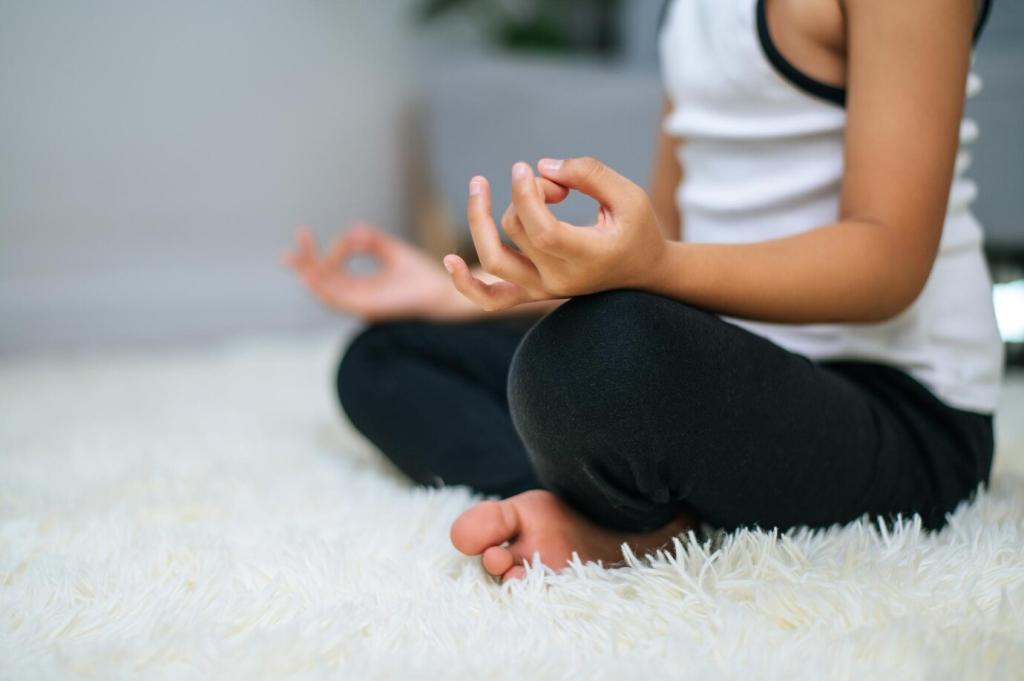Start With the Breath
Set a timer for two minutes. Close your eyes, and rest attention where you feel the breath most vividly—nostrils, chest, or belly. When thoughts drift, gently return. Each return builds your stress-reducing attention muscle without judgment or struggle.
Start With the Breath
Inhale for four counts, hold for four, exhale for four, hold for four—repeat four rounds. This steady rhythm downshifts your nervous system, easing stress and sharpening focus. Use it before difficult conversations, emails, or commute transitions when tension spikes unexpectedly.




